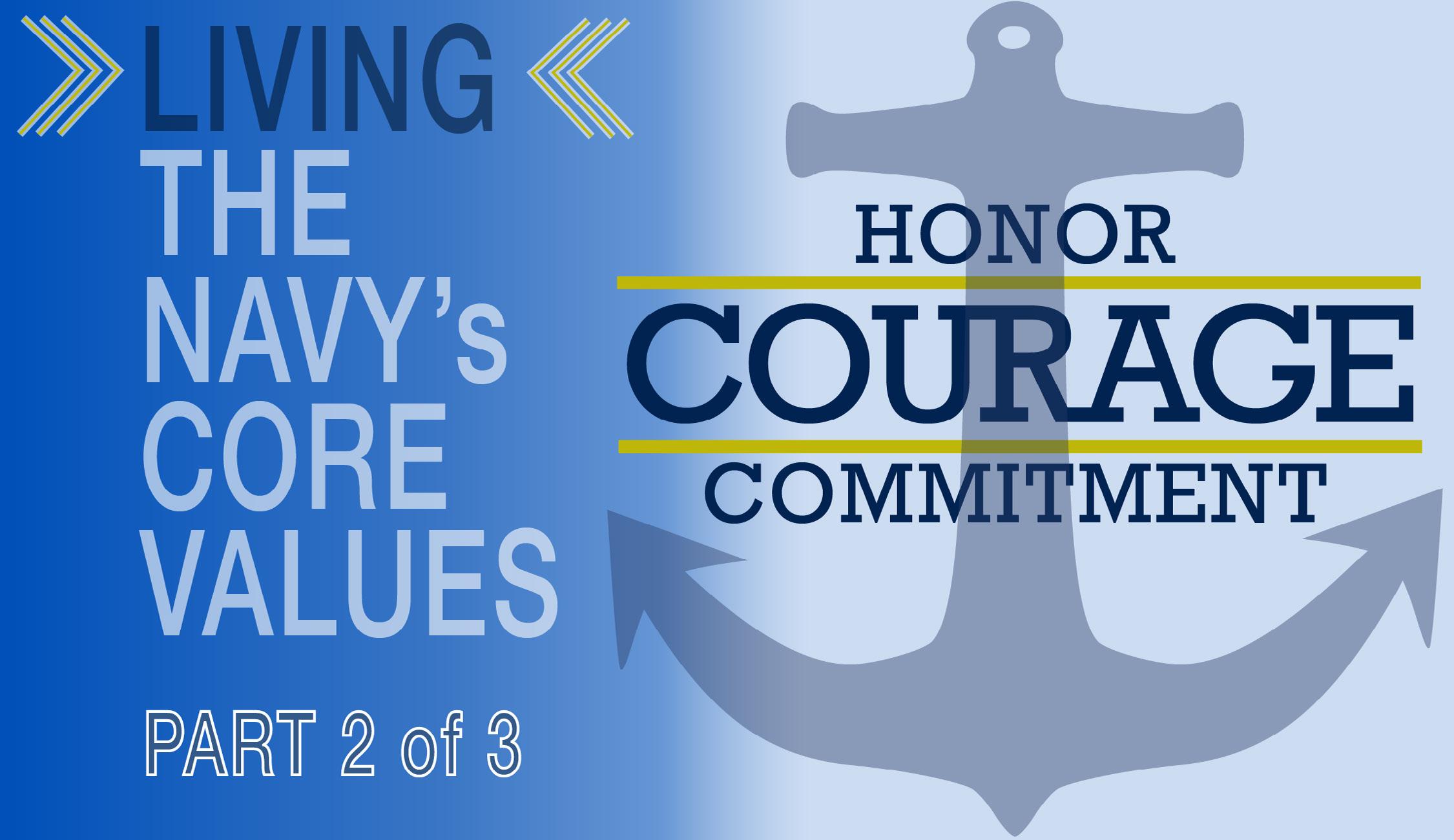
3 minute read
CHAPLAIN'S CORNER
By Lt. Michael Spoke, Command Chaplain

Advertisement
What is courage?
A well-known adage comes to mind: “Courage is not the absence of fear.” Often this saying is used to imply that we can feel afraid and it is still possible to be courageous. But to say that courage is “still possible” is not acknowledging the real role that fear has in courage. Fear is not something we may encounter when trying to be courageous. Fear is exactly what makes courage possible. To say that “courage is not the absence of fear” is really to say that without fear, there is no courage.
Why? Because courage requires risk and vulnerability. Every courageous act comes with the acknowledgment that there is something of value that can be lost. It can be something as valuable as giving up your life, or something as small as comfort when experiencing an awkward moment. Either way, the fear of losing something is what sets the stage for courage.
This is why courage is not just the ability to do what scares someone else. Public speaking is a common fear for many people. Yet if I personally do not fear public speaking, getting behind the microphone is not showing courage. I do not feel the risk of the action. While it may seem courageous to others, if I do not actually believe I have anything to lose, then it is simply an activity for me. On the other hand, if losing a sense of competency or tarnishing your reputation is scary to you, it would absolutely take courage to act as MC of the Navy Ball. There is a real vulnerability involved, and you really experience risk.
Brene Brown summarizes courage this way: “Courage is the ability to show up when you can’t control the outcome.”
I would make only one edit to Brown’s quote. Courage is not an ability, it is a choice. Whether we have the outcome we hoped for or not, the choice to act is what constitutes courage. Instead of reacting to alleviate our fear, we choose instead to be vulnerable to an outcome that may include loss. We choose to engage the risk. We do not need courage to act when we believe we can control the outcome. We need courage when we know we cannot. So, what enables us to make the choice to be courageous? In a nutshell, the answer is Honor. In the face of a fear of loss, honor leads us to pursue the chance of gaining or maintaining something we hold in greater value. We choose to risk ourselves to an uncertain outcome because we believe that even the pursuit of that greater value is honorable. Even if we fail to accomplish what we hoped, even if we encounter the loss we feared, the moment of courage lies in the decision to act according to what we believe to be of greater value.
I may not be able to save my friends, and I may fear losing my life, but I believe that even the effort of trying to save them is honorable. I may not be able to control the outcome of a challenging conversation, and I may fear losing the relationship, but I believe that even the effort of trying to be honest is more honorable than lying.
Knowing what our greater values are enables us to more quickly recognize and evaluate not only why we are afraid, but how we really want to act. In an occupational sense, is why knowing what the Navy values is critical for informing all of us on what is expected of us even in the face of fear.
Big or small, we face choices requiring courage in almost every area of our lives. Mentally, spiritually, emotionally, relationally, physically… we face risk and we face vulnerability. When we do, we need to make a choice. The question is: Will you choose courage?
Read 'Part 1: Honor' of this three-part series on Living the Navy's Core Values at: https://issuu.com/soudapao/docs/beacon_ may_21_final/s/12189456










